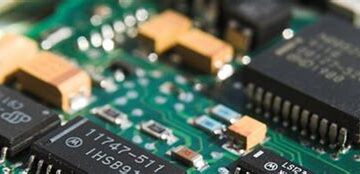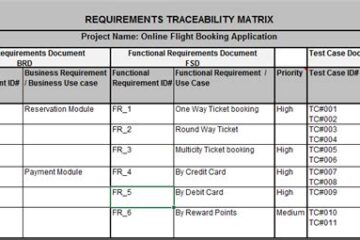Introduction
In today’s fast-paced industrial landscape, efficiency and adaptability are key factors in determining the success of any project. One aspect that plays a crucial role in streamlining the manufacturing process is the choice of PCB assembly method. Among the various options available, Small Batch PCB Assembly has emerged as a game-changer, offering numerous benefits that make it the preferred choice for a wide range of industrial projects. In this article, we will explore the reasons why small batch PCB assembly should become your go-to method and how it can revolutionize your manufacturing workflow.
What is Small Batch PCB Assembly?
Small batch PCB assembly refers to the process of manufacturing printed circuit boards in smaller quantities, typically ranging from a few units to a few hundred. This approach differs from mass production, where large volumes of identical PCBs are produced in a single run. Small batch assembly allows for greater flexibility, faster turnaround times, and the ability to accommodate design changes or prototyping needs efficiently.
The Advantages of Small Batch PCB Assembly
1. Cost-Effectiveness
One of the primary reasons why small batch PCB assembly should be your preferred method is its cost-effectiveness. When you opt for small batch production, you can avoid the high upfront costs associated with mass production. This is particularly beneficial for projects with limited budgets or those in the early stages of development. By producing PCBs in smaller quantities, you can minimize the financial risk and allocate resources more efficiently.
2. Faster Turnaround Times
In today’s competitive market, time is of the essence. Small batch PCB assembly offers significantly faster turnaround times compared to mass production. With streamlined processes and dedicated attention to each batch, manufacturers can deliver high-quality PCBs in a matter of days rather than weeks or months. This quick turnaround enables you to bring your products to market faster, giving you a competitive edge and allowing you to respond swiftly to changing customer demands.
3. Design Flexibility
Small batch PCB assembly provides unparalleled design flexibility. As industrial projects evolve and new requirements emerge, the ability to make design changes quickly and efficiently becomes crucial. With small batch production, you can easily incorporate modifications, test new features, and iterate on your designs without incurring significant costs or delays. This flexibility allows you to optimize your PCBs, ensuring they meet the specific needs of your project and deliver optimal performance.
4. Prototype Development
Prototyping is an essential phase in any industrial project, allowing you to validate designs, test functionality, and identify potential issues before committing to full-scale production. Small batch PCB assembly is ideally suited for prototype development. By producing a limited number of boards, you can thoroughly evaluate your designs, make necessary adjustments, and refine your prototypes until they meet your desired specifications. This iterative process ensures that your final product is of the highest quality and reliability.
5. Inventory Management
Effective inventory management is crucial for maintaining a lean and efficient manufacturing process. With small batch PCB assembly, you can avoid the pitfalls of overstocking and minimize the risk of obsolete inventory. By producing PCBs in smaller quantities, you can align your production with actual demand, reducing the need for extensive storage space and minimizing the likelihood of excess inventory. This approach not only saves costs but also allows for better cash flow management and reduces the environmental impact of unused components.

Applications of Small Batch PCB Assembly
Small batch PCB assembly finds applications across a wide range of industrial sectors. Some of the key areas where it proves invaluable include:
| Industry | Applications |
|---|---|
| Aerospace | Avionics systems, satellite components, flight control modules |
| Automotive | Engine control units, infotainment systems, sensors |
| Medical Devices | Diagnostic equipment, monitoring devices, implantable electronics |
| IoT and Wearables | Smart home devices, fitness trackers, wearable sensors |
| Robotics and Automation | Control systems, sensor integration, actuator boards |
These are just a few examples of the diverse range of applications where small batch PCB assembly can make a significant impact. Regardless of the specific industry or project, the benefits of this approach remain consistent, offering cost savings, design flexibility, and faster time-to-market.
Choosing the Right Small Batch PCB Assembly Partner
To fully harness the advantages of small batch PCB assembly, it is essential to partner with a reliable and experienced manufacturer. When selecting a PCB assembly provider, consider the following factors:
-
Technical Expertise: Look for a partner with a proven track record of delivering high-quality PCBs across various industries. They should have the technical knowledge and skills to handle complex designs and provide valuable insights to optimize your PCBs.
-
State-of-the-Art Facilities: The manufacturer should invest in advanced equipment and maintain clean, well-organized facilities to ensure consistent quality and reliability. Modern manufacturing technologies, such as automated assembly lines and rigorous quality control processes, are essential for producing top-notch PCBs.
-
Flexibility and Scalability: Choose a partner that can accommodate your specific requirements and adapt to changing needs. They should be able to handle small batch orders efficiently while also having the capacity to scale up production if required.
-
Excellent Customer Support: Effective communication and responsive customer support are critical for a successful partnership. Look for a manufacturer that prioritizes open communication, provides timely updates, and offers technical support throughout the entire manufacturing process.
Frequently Asked Questions (FAQ)
-
What is the minimum order quantity for small batch PCB assembly?
The minimum order quantity for small batch PCB assembly varies depending on the manufacturer. Some providers may accept orders as low as a single unit, while others may have a minimum requirement of a few dozen boards. It is essential to discuss your specific needs with potential partners to ensure they can accommodate your requirements. -
How long does it take to receive PCBs through small batch assembly?
The turnaround time for small batch PCB assembly is significantly faster compared to mass production. Depending on the complexity of your design and the manufacturer’s workload, you can typically expect to receive your PCBs within a few days to a couple of weeks. Many manufacturers offer expedited services for urgent projects, ensuring you receive your boards in the shortest possible time. -
Can small batch PCB assembly handle complex designs?
Absolutely! Small batch PCB assembly is capable of handling complex designs and advanced features. Experienced manufacturers have the technical expertise and state-of-the-art equipment to produce high-quality PCBs with fine pitch components, multilayer structures, and intricate routing. However, it is essential to communicate your specific requirements and discuss any potential challenges with your chosen partner to ensure optimal results. -
Is small batch PCB assembly suitable for high-volume production?
While small batch PCB assembly is primarily designed for low to medium-volume production, it can serve as a stepping stone towards high-volume manufacturing. By starting with small batches, you can validate your designs, gather user feedback, and make necessary improvements before committing to larger production runs. Many manufacturers offer scalability options, allowing you to seamlessly transition from small batch to mass production as your project grows. -
How can I ensure the quality of PCBs produced through small batch assembly?
To ensure the quality of PCBs produced through small batch assembly, partner with a reputable manufacturer that adheres to strict quality control processes. Look for certifications such as ISO 9001 and IPC standards, which demonstrate a commitment to quality and reliability. Additionally, discuss the manufacturer’s testing and inspection procedures, including automated optical inspection (AOI), X-ray inspection, and functional testing, to ensure that each PCB meets your specified requirements.
Conclusion
Small batch PCB assembly has emerged as a game-changer in the industrial manufacturing landscape, offering a multitude of benefits that make it the preferred choice for a wide range of projects. From cost-effectiveness and faster turnaround times to design flexibility and prototype development, small batch production empowers businesses to streamline their manufacturing processes and achieve their goals more efficiently.
By partnering with a reliable and experienced PCB assembly provider, you can unlock the full potential of small batch manufacturing and take your industrial projects to new heights. Embrace the power of small batch PCB assembly and experience the transformative impact it can have on your business, enabling you to innovate faster, respond to market demands swiftly, and deliver high-quality products that exceed customer expectations.



0 Comments